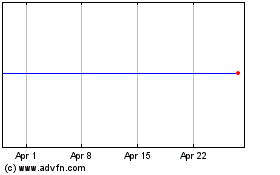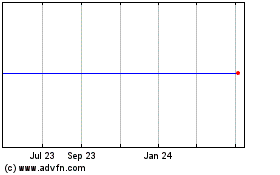Largest and most inclusive patient
population of any GLP-1 CV outcomes trial with 14,500 patients at
687 trial sites across 35 countries
Full trial results presented at the annual
meeting of the European Association for the Study of Diabetes
(EASD) and simultaneously published in the New England Journal of
Medicine
AstraZeneca today announced full results from the EXSCEL
(EXenatide Study of Cardiovascular Event Lowering) trial that showed cardiovascular
safety with Bydureon (exenatide extended-release) in patients with
type-2 diabetes (T2D) at a wide range of CV risk.
Exenatide once-weekly did not increase the incidence of major
adverse cardiovascular events (MACE), a composite endpoint of CV
death, non-fatal heart attack (myocardial infarction) or non-fatal
stroke, compared to placebo (Hazard Ratio [HR]: 0.91; 95%
Confidence Interval [CI]: 0.83-1.00; p<0.001 for
non-inferiority).
There were also fewer CV events observed in the exenatide arm of
the trial (839 [11.4%] versus 905 [12.2%]), although the primary
efficacy objective of a superior reduction in MACE narrowly missed
statistical significance (p=0.061). The direction of the
cardiovascular outcomes results in EXSCEL was consistent with those
seen in recently completed outcomes trials within the GLP-1
receptor agonist class. Additionally, in a prespecified secondary
analysis, patients on exenatide had a 14% lower incidence of death
from all causes (HR: 0.86; 95% CI: 0.77-0.97).
The full results of EXSCEL, including important secondary
endpoints, sensitivity analyses and regional data, were presented
at the 53rd annual meeting of EASD and simultaneously published
today online in the New England Journal of Medicine.
Investigator Rury Holman, Professor of Diabetic Medicine and
Diabetes Trials Unit Director, University of Oxford, UK, said:
“People with type-2 diabetes have up to a two-times increased risk
for all-cause mortality and four-times increased risk for
cardiovascular death compared to the general population, making it
imperative that their type-2 medication does not further increase
their risk for cardiovascular disease and related complications.
The EXSCEL study results demonstrated that exenatide could be used
safely in patients with type-2 diabetes with a wide range of
cardiovascular risk and suggested potential benefit with respect to
all-cause mortality.”
Elisabeth Bj�rk, Vice President, Head of Cardiovascular and
Metabolic Diseases, Global Medicines Development, said: “The
results from the EXSCEL trial provide important evidence supporting
the use of once-weekly Bydureon in a broad population of patients
with type-2 diabetes at a wide range of cardiovascular risk. This
comprehensive trial is representative of our commitment to address
multiple risk factors or co-morbidities associated with
cardiovascular and metabolic diseases and helps to inform clinical
practice for the benefit of millions of patients with type-2
diabetes.”
Multiple sensitivity analyses for MACE, recalculating the
outcome under alternative assumptions to determine the potential
impact of different variables, were consistent with primary
analyses. No safety issues were identified during the EXSCEL trial
and data were consistent with the known safety profile of
exenatide. Specifically, there was no imbalance in retinopathy, a
microvascular complication that commonly occurs from type-2
diabetes and can lead to serious visual disability and
blindness.
The EXSCEL trial enrolled the largest and most inclusive patient
population of any CV outcomes trial of the glucagon-like peptide-1
(GLP-1) receptor agonist class conducted to date, having included
more than 14,500 patients at 687 trial sites across 35 countries,
incorporating usual care and wide-ranging eligibility criteria.
BYDUREON is indicated as an adjunct to diet and exercise to
improve glycemic control in adults with type 2 diabetes mellitus.
BYDUREON is not indicated to reduce the risk of MACE or all-cause
mortality, and there are no clinical trials establishing conclusive
evidence of macrovascular risk reduction with BYDUREON. AstraZeneca
is working with regulatory authorities to incorporate these data
into the Bydureon label.
IMPORTANT SAFETY INFORMATION
WARNING: RISK OF THYROID C-CELL TUMORS
- Exenatide extended-release causes
an increased incidence in thyroid C-cell tumors at clinically
relevant exposures in rats compared to controls. It is
unknown whether BYDUREON causes thyroid C-cell
tumors, including medullary thyroid carcinoma (MTC), in
humans, as the human relevance of exenatide
extended-release-induced rodent thyroid C-cell tumors has not been
determined
- BYDUREON is contraindicated in
patients with a personal or family history of MTC or in patients
with Multiple Endocrine Neoplasia syndrome type 2 (MEN
2). Counsel patients regarding the potential risk of MTC with
the use of BYDUREON and inform them of symptoms of thyroid tumors
(e.g., mass in the neck, dysphagia, dyspnea, persistent
hoarseness). Routine monitoring of serum calcitonin or using
thyroid ultrasound is of uncertain value for detection of MTC in
patients treated with BYDUREON
CONTRAINDICATIONS
- Personal or family history of MTC,
patients with MEN 2
- Patients with prior serious
hypersensitivity reactions to exenatide or to any of the product
components
WARNINGS AND PRECAUTIONS
- Pancreatitis Exenatide has been
associated with acute pancreatitis, including fatal and non-fatal
hemorrhagic or necrotizing pancreatitis. After initiation, observe
patients carefully for symptoms of pancreatitis. If suspected,
discontinue promptly and do not restart if confirmed. Consider
other antidiabetic therapies in patients with a history of
pancreatitis
- Hypoglycemia BYDUREON
increased the risk of hypoglycemia when coadministered with insulin
and insulin secretagogues. Consider lowering the dose of these
agents when coadministered with BYDUREON
- Renal Impairment Altered
renal function, including increased serum creatinine, renal
impairment, worsened chronic renal failure, and acute renal
failure, sometimes requiring hemodialysis and kidney
transplantation has been reported. Not recommended in patients with
severe renal impairment or end-stage renal disease. Use caution in
patients with renal transplantation or moderate renal failure
- Severe Gastrointestinal
Disease Because exenatide is commonly associated with
gastrointestinal adverse reactions, not recommended in patients
with severe gastrointestinal disease (eg, gastroparesis)
- Immunogenicity Patients may
develop antibodies to exenatide. In 5 registration trials,
attenuated glycemic response was associated in 6% of
BYDUREON-treated patients with antibody formation. If worsening of
or failure to achieve adequate glycemic control occurs, consider
alternative antidiabetic therapy
- Hypersensitivity Reports of
serious hypersensitivity reactions (eg, anaphylaxis and
angioedema). If this occurs, patients should discontinue BYDUREON
and promptly seek medical advice
- Injection-Site
Reactions Serious reactions (eg, abscess, cellulitis, and
necrosis), with or without subcutaneous nodules, have been
reported
- Macrovascular Outcomes No
clinical studies establishing conclusive evidence of macrovascular
risk reduction with BYDUREON
ADVERSE REACTIONS
Most common (≥5%) and occurring more frequently than comparator
in clinical trials: nausea (16.9%), diarrhea (12.7%), headache
(8.0%), vomiting (6.8%), constipation (5.9%), injection-site
pruritus (5.9%), injection-site nodule (5.3%), and dyspepsia
(5.1%)
DRUG INTERACTIONS
- Oral Medications BYDUREON
slows gastric emptying and may reduce the rate of absorption of
orally administered drugs
- Warfarin Increased
international normalized ratio (INR) sometimes associated with
bleeding has been reported with concomitant use of exenatide with
warfarin. Monitor INR frequently until stable upon initiation of
BYDUREON
PREGNANT AND NURSING WOMEN
- Pregnant Women Based on
animal data, may cause fetal harm. Use during pregnancy only if the
potential benefit justifies the potential risk to the fetus.
- Nursing Women Discontinue
BYDUREON or discontinue nursing
INDICATION AND LIMITATIONS OF USE
BYDUREON is indicated as an adjunct to diet and exercise to
improve glycemic control in adults with type 2
diabetes mellitus
- Not recommended as first-line therapy
for patients inadequately controlled on diet and exercise
- Not a substitute for insulin, should
not be used in patients with type 1 diabetes or diabetic
ketoacidosis
- Not recommended for use with
insulin
- BYDUREON and BYETTA® (exenatide)
injection contain the same active ingredient, exenatide. Do not
coadminister with BYETTA
- Not studied in patients with a history
of pancreatitis. Consider other antidiabetic therapies in patients
with a history of pancreatitis
Please click here for Full Prescribing Information
and click here for Medication Guide for BYDUREON 2 mg,
including Boxed WARNING.
NOTES TO EDITORS
About EXSCEL
EXSCEL is a Phase IIIb/IV, double-blind, placebo-controlled,
global CV outcomes trial conducted in 35 countries and enrolled
more than 14,500 patients with type-2 diabetes with or without
additional CV risk factors or prior CV events. Participants were
randomized to receive exenatide once-weekly 2mg or matching placebo
by subcutaneous injections. EXSCEL was run jointly by two academic
research organizations - the Duke Clinical Research Institute
(Durham, NC, US) and the University of Oxford Diabetes Trials Unit
(Oxford, UK).
About AstraZeneca in Diabetes
AstraZeneca is pushing the boundaries of science with the goal
of developing life-changing medicines that aim to reduce the global
burden and complications of diabetes. As a main therapy area for
the company, we are focusing our research and development efforts
on diverse populations and patients with significant
co-morbidities, such as cardiovascular disease, obesity,
non-alcoholic steatohepatitis (NASH), and chronic kidney disease.
Our commitment to diabetes is exemplified by the depth and breadth
of our global clinical research program This commitment is
advancing understanding of the treatment effects of our diabetes
medicines in broad patient populations, as well as exploring
combination products to help more patients achieve treatment
success earlier in their disease.
About AstraZeneca in Cardiovascular & Metabolic Diseases
(CVMD)
Cardiovascular, renal and metabolic diseases are key areas of
focus for AstraZeneca as part of the company’s strategy for
achieving scientific leadership and returning to growth. By
collaborating across therapeutic disciplines within the CVMD
therapy area, we are addressing the underlying disorders that drive
CVMD risk, with the goal of reducing morbidity, mortality and organ
damage through innovative therapies. Recognizing the growing unmet
needs and challenges faced by the millions of people worldwide
living with these interrelated diseases, we are determined to
understand how they interact and impact one another – and how they
can be treated together to save more patients’ lives.
About AstraZeneca
AstraZeneca is a global, science-led biopharmaceutical company
that focuses on the discovery, development and commercialization of
prescription medicines, primarily for the treatment of diseases in
three main therapy areas - Oncology, Cardiovascular & Metabolic
Diseases and Respiratory. The Company also is selectively active in
the areas of autoimmunity, neuroscience and infection. AstraZeneca
operates in over 100 countries and its innovative medicines are
used by millions of patients worldwide. For more information,
please visit www.astrazeneca-us.com and follow us on Twitter
@AstraZenecaUS.
US-14650 Last Updated 9/17
View source
version on businesswire.com: http://www.businesswire.com/news/home/20170914006172/en/
AstraZenecaMichele Meixell, +1 302-885-2677orAlex Engel, +1
302-885-2677
AstraZeneca (NYSE:AZN)
Historical Stock Chart
From Mar 2024 to Apr 2024

AstraZeneca (NYSE:AZN)
Historical Stock Chart
From Apr 2023 to Apr 2024
